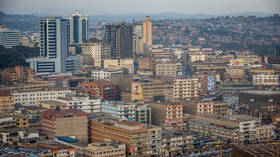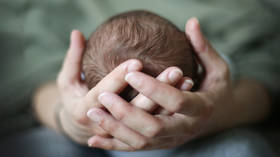Nazis were killing even wounded people in hospitals - WWII remembered
RT presents War Witness – a special project dedicated to the 65th anniversary of the Victory in the Second World War.
World War II veterans recount their stories about the war, its effects and its human perspective.
Don Seki, a corporal from a clean-up unit from the US, remembers when his parents decided to go home – to Japan. He refused to follow them and stayed in the US. “That morning we heard that Pearl Harbor was attacked.”
“I was working at Pearl Harbor,” he recalls, adding “And marines got me out – you no longer worked in any kind of installation.” He automatically became an enemy of the state.
In 1943 it was approved that all Japanese-Americans are American and they could volunteer.
“So, we are 10,000 volunteers, aged from 17 to 90. We have confrontation with the Germans near Bruyères– small town,” he says.
In this battle, one battalion was trapped by the Germans but, Don Seki says, “We attacked. Not matter what happened – we had to go on.”
As a result, Japanese-American troops liberated the town.
Aleksandr Beer, an officer from the Soviet Tank Corps from the Czech Republic, also recalls tragic days of the war: “We joined the Red Army to fight the German occupants. I graduated from the tank school in Saratov as an officer, I fought in the war as a tank crewman, I was injured, as were many others. And on 8th March, many of the wounded soldiers and officers were evacuated to Kharkov to be treated.
“When the Germans took Kharkov, I recall, they executed these injured people right in a hospital – none of them came back.”
Aleksandr Beer escaped death during the bombing of a lorry which was transporting wounded, as there was no room for him in it, and he stayed in another hospital.
“They wanted to amputate my leg, but then a doctor came – a woman called Tanya – and she said ‘No, no, we can’t do this. He is still young, we will fix him up’. She treated me personally and I’m very grateful to her for letting me keep my leg.”
business/135136-thirty-working-hour-week-136











